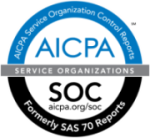

Christmas is just a few days away, and New Year’s is right around the corner. While most of us are eating dangerous amounts of turkey and picking the perfect outfit for those “2022” glasses, criminals are ready to deploy a raft of tax-season scams that target tax professionals.
The IRS rightly points out that tax and accounting firms can house private financial data for thousands of taxpayers—making them prime targets for tax-related identity theft scams. After breaching your security, criminals not only have access to all that client data, but they might even be able to file fraudulent returns using your EFIN and login credentials.
Sound scary? It should.
How do I keep criminals from stealing my EFIN?
Just like you regularly check your credit card statement for suspicious charges, the IRS says all tax professionals should keep tabs on their EFIN activity—especially during filing season. To do that, you need to regularly log into your IRS e-Services account. If the number of returns associated with your EFIN is different from your records, you could have been compromised.
In addition to checking your e-Services account, the IRS recommends taking these steps to protect your EFIN:
- Learn to recognize and avoid phishing scams; do not open links or attachments from suspicious emails, most data thefts begin with a phishing email.
- Secure all devices with security software and let it automatically update.
- Use strong passwords of eight or more mixed characters; use phrases that are easily remembered, and password protect all wireless devices.
- Use two-factor authentication where available.
- Encrypt all sensitive files and emails and use strong password protections.
- Backup sensitive data to a safe and secure external source not connected fulltime to the network.
- Wipe clean or destroy old computer hard drives that contain sensitive data.
For more IRS data security information, check out our blog, “National Tax Security Awareness Week Tips.” It covers Security Summit recommendations for safely shopping online, avoiding fake charities, and helping small businesses protect their data.
Cybercriminals are ready for filing season. Make sure you are too.
Source: IRS Tax Tip 2021-182







